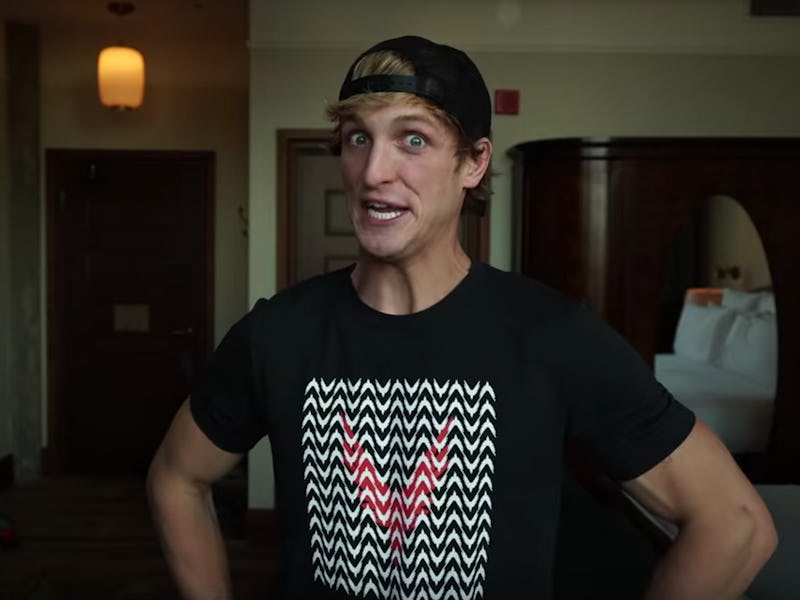How YouTubers Use "Documentaries" and "Friendship" to Spin Controversy
The illusion of friendship allows YouTubers to control their own controversies.

The most telling reaction to Logan Paul’s Aokigahara video, where he filmed his reaction to finding an apparent suicide victim, wasn’t the widespread criticism he received. It was the ardent defense from his fans. Paul represents a new form of celebritism made possible through social media, where fandom is synonymous with family, and his viewers will defend him as if he were their own brother.
YouTubers Are Using ‘Documentaries’ to Spin Controversy
Paul taped a dead body in the name of content and YouTube punished him by suspending ads on all his channels. He was harshly condemned for his actions by YouTubers and columnists alike.
And yet, his subscriptions actually went up that month after taking a small initial hit at the height of the controversy. In the past 30 days alone, he gained 181,246 new subscribers, well ahead of his 70,000 per month average before the Aokigahara video.
On July 4, Paul announced in a vlog that he is filming a documentary on his life since the controversy. The documentary will also delve into his childhood, and the vlog featured footage of Paul mentoring his high school wrestling team.
This is emblematic of a troubling trend where YouTubers release glorified vlogs under the guise of documentaries to spin controversy. The word “documentary” implies an attempt at objectivity or at least introspection, but as the sole content creator of the piece, Paul can control exactly how he comes off. As Julia Alexander of Polygon puts it, it’s an “apology tour” on Paul’s own terms.
Paul followed up his apology with a video of him tasering a dead rat.
In the wake of the disastrous TanaCon, the anti-VidCon convention organized by Tana Mongeau, Shane Dawson released a three-part “documentary” series published about the event. It was Dawson’s attempt to investigate what went wrong, but Dawson himself was a featured talent for TanaCon and he maintains a close relationship with Mongeau. At one point in the video, he even says he sees Mongeau as his own child.
As the filmmaker, Dawson had complete control of what went into his videos. The end result was that Mongeau was largely absolved, with lengthy footage of her weeping and gushing about how grateful she is to be given the chance to explain her side of the story. In the end, Mongeau is portrayed as a young woman who was scammed.
As both media figures and content creators, YouTubers have the unique ability to rationalize their bad behavior with these “documentaries”. Even apologies can be spun into vlogs and monetized, eagerly consumed by viewers who regard YouTubers as more than just celebrities.
In The Age of Social Media, Followers Are More Than Just Fans
Social media has eroded the traditional barriers of celebrity by tricking fans into believing their idols are their friends. YouTubers have thrived alongside traditional entertainers, such as actors and musicians, by tapping into this illusion of familiarity. Whereas television (especially reality television) carries the stigma of being scripted and disingenuous, YouTube enjoys the reputation of carrying everyday content from the average person.
Of course, this is patently untrue. In actuality, YouTube is dominated by large studios and powerful creators who often have a team of producers, designers, talent agents, sponsors, and secretaries behind them. But the most successful YouTubers know that the key to growth and sustainability is cultivating an audience that transcends mere fandom.
PewDiePie’s (or Felix Kjellberg) viewers are not just fans. They’re the “Bro Army” (that applies to men and women), and PewDiePie trademark ending for his videos is fist bumping the screen and asking his Bro Army to reciprocate. Logan Paul, similarly, leads the “Logang”. Both Paul and Kjellberg feel accessible — at any point, a random follower in the Bro Army or the Logang can have a comment they posted on YouTube liked by their idols. They could even receive a personal shoutout from them via Twitter.
Kjellberg winding back for a fist bump with his fans at home.
These seemingly small gestures signify something more than content to many fans. To many, YouTubers represent older siblings, confidantes, and counselors.
Paul’s fans vehemently defended him during his Aokigahara controversy by uploading their own heartfelt vlogs of what he means to them. “He is my hero, who I look up to,” a description of one video said.
Mark Fischbach, who operates a popular YouTube gaming channel under the moniker Markiplier, has received multiple vlogs from fans who have declared that his cheery videos have helped him through depression and thoughts of suicide.
It’s no wonder then that fans will stick by their favorite YouTubers against criticism. Our brains are wired for consensus, not reason. We are not built to trust facts on their own. Rather, we are far more likely to believe in someone we trust, not something.
If YouTubers encourage their fans to look up to them as surrogate big brothers and big sisters, then they have the ability to spin their own controversies however they see fit. They can even pass their PR vlogs off as documentaries.